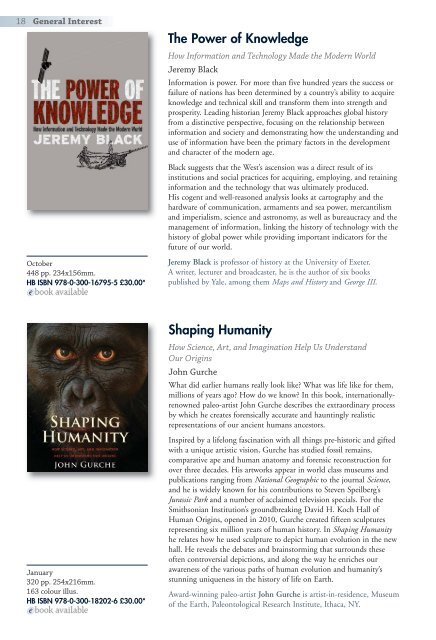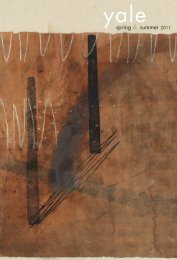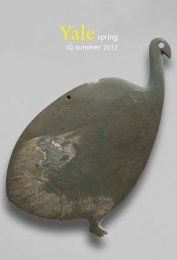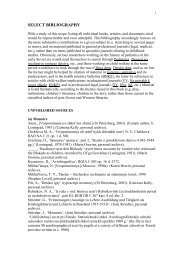View & Download - Yale University Press
View & Download - Yale University Press
View & Download - Yale University Press
Create successful ePaper yourself
Turn your PDF publications into a flip-book with our unique Google optimized e-Paper software.
18 General Interest<br />
The Power of Knowledge<br />
How Information and Technology Made the Modern World<br />
Jeremy Black<br />
Information is power. For more than five hundred years the success or<br />
failure of nations has been determined by a country’s ability to acquire<br />
knowledge and technical skill and transform them into strength and<br />
prosperity. Leading historian Jeremy Black approaches global history<br />
from a distinctive perspective, focusing on the relationship between<br />
information and society and demonstrating how the understanding and<br />
use of information have been the primary factors in the development<br />
and character of the modern age.<br />
Black suggests that the West’s ascension was a direct result of its<br />
institutions and social practices for acquiring, employing, and retaining<br />
information and the technology that was ultimately produced.<br />
His cogent and well-reasoned analysis looks at cartography and the<br />
hardware of communication, armaments and sea power, mercantilism<br />
and imperialism, science and astronomy, as well as bureaucracy and the<br />
management of information, linking the history of technology with the<br />
history of global power while providing important indicators for the<br />
future of our world.<br />
October<br />
448 pp. 234x156mm.<br />
HB ISBN 978-0-300-16795-5 £30.00*<br />
Jeremy Black is professor of history at the <strong>University</strong> of Exeter.<br />
A writer, lecturer and broadcaster, he is the author of six books<br />
published by <strong>Yale</strong>, among them Maps and History and George III.<br />
Shaping Humanity<br />
How Science, Art, and Imagination Help Us Understand<br />
Our Origins<br />
John Gurche<br />
What did earlier humans really look like? What was life like for them,<br />
millions of years ago? How do we know? In this book, internationallyrenowned<br />
paleo-artist John Gurche describes the extraordinary process<br />
by which he creates forensically accurate and hauntingly realistic<br />
representations of our ancient humans ancestors.<br />
January<br />
320 pp. 254x216mm.<br />
163 colour illus.<br />
HB ISBN 978-0-300-18202-6 £30.00*<br />
Inspired by a lifelong fascination with all things pre-historic and gifted<br />
with a unique artistic vision, Gurche has studied fossil remains,<br />
comparative ape and human anatomy and forensic reconstruction for<br />
over three decades. His artworks appear in world class museums and<br />
publications ranging from National Geographic to the journal Science,<br />
and he is widely known for his contributions to Steven Speilberg’s<br />
Jurassic Park and a number of acclaimed television specials. For the<br />
Smithsonian Institution’s groundbreaking David H. Koch Hall of<br />
Human Origins, opened in 2010, Gurche created fifteen sculptures<br />
representing six million years of human history. In Shaping Humanity<br />
he relates how he used sculpture to depict human evolution in the new<br />
hall. He reveals the debates and brainstorming that surrounds these<br />
often controversial depictions, and along the way he enriches our<br />
awareness of the various paths of human evolution and humanity’s<br />
stunning uniqueness in the history of life on Earth.<br />
Award-winning paleo-artist John Gurche is artist-in-residence, Museum<br />
of the Earth, Paleontological Research Institute, Ithaca, NY.












